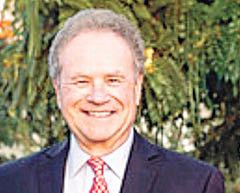
By Lawrence Sykoff
In sports, halftime is generally reserved for review of the first half of the game. The coach’s discussion with the players often includes a wide-ranging analysis of the game thus far, highlighting the opportunities, challenges, weaknesses, vulnerabilities and overall performance strategy. These brief coaching sessions are centered on optimizing second-half performance.
As students enter the second semester of the school year, this is indeed an opportunity for parents to schedule a “halftime” meeting with their child and provide meaning and context to their results. Such conversations help children evaluate their own performance and assess their own level of dedication toward the overarching goal to do their very best.
Guided discussions about progress and performance also help children learn about the value of course corrections. Such advice can promote motivation and restore self-esteem. However, if children internalize lack of progress or sub-optimal results as personal failures, they can easily become discouraged. Parents, like great halftime coaches, can play a pivotal role at such junctures by focusing on new learning strategies, helping children actively process old patterns and, perhaps, adopt more effective ones.
Over time, self-reflective children become more resilient and optimistic about challenges, quickly learning the value of honest and candid appraisal. This type of guided halftime talk has an incremental impact, enabling children to rely on themselves more consistently and empowering them with more self-confidence. There is no better motivator than feeling in control of the strategies that lead to your own success.
Parents can trust these three Rs to guide halftime conversations with their children as the new semester is about to begin.
***Review*** – Giving a child the opportunity to review the cycles of growth and stagnation puts progress into an objective frame. This expanded perspective allows children to see that we are not genetically prewired and that change is possible. Reviewing the highlights of the last semester extracts and defines the growth points. Reviewing the challenges and setbacks illuminates the areas needing new strategies and a fresh lens. If parents remain optimistic, a child’s outlook will likely follow suit. Learning that occasional failure can be understood and ultimately conquered is equivalent to planting the seeds of drive and persistence. This is when a child begins to harness his or her full potential.
***Reaffirm*** – There is an old saying, “Identify your limitations and then ignore them.” It seems logical to short-change possibility by believing too much in one’s weaknesses and not building greater confidence in one’s strengths. The truth is that children are built for challenge and adaptation. Helping them internalize their strongest competencies counterbalances feelings of defeat with notions of genuine possibility. Reaffirming qualities such as commitment, persistence and discipline helps children process minor setbacks in context. The qualities associated with successful outcomes are likewise transferable to difficult and demanding tasks. It is not unusual to see a young, high-achieving violinist use the concentrated skills and energies required to master the instrument to generate success in academic areas. The compensation factor is greatly enhanced when children know what they do well. Parents sow the seeds of optimism when they consistently acknowledge and reaffirm their child’s innate gifts and talents.
***Reassure*** – Parental faith paves the way for children to enjoy and experience significant achievement. While every child is different, parents who deeply believe in the extraordinary potential of their children will more than likely see them achieve sustained levels of success. Reassurance that they can control their own destiny brings them enormous comfort and satisfaction. Combining a reassuring attitude with high expectations – and delivered with compassion, creativity and patience – mitigates against life’s inevitable tests and trials. Parents are not supposed to always make life easier for their children. Instead, they ought to interpret, reassure, oversee and modulate challenges. In this way, children learn to lean toward new opportunities, becoming energized by the prospect of expanding their potential.
Parents have an opportunity every new semester to set time aside to become a halftime coach. The consistency of such guidance and mentoring validates for them that there is always an opportunity to do more, see more and become more. With such sustained communications, parents can return to the sidelines during the game and watch their children flourish with passion and faith in their talents on the field.
Lawrence S. Sykoff, Ed.D., is Headmaster Emeritus at Ranney School and president of LSS Consulting Group.
This article originally appeared in the Jan. 2, 2020 print edition of The Two River Times.














